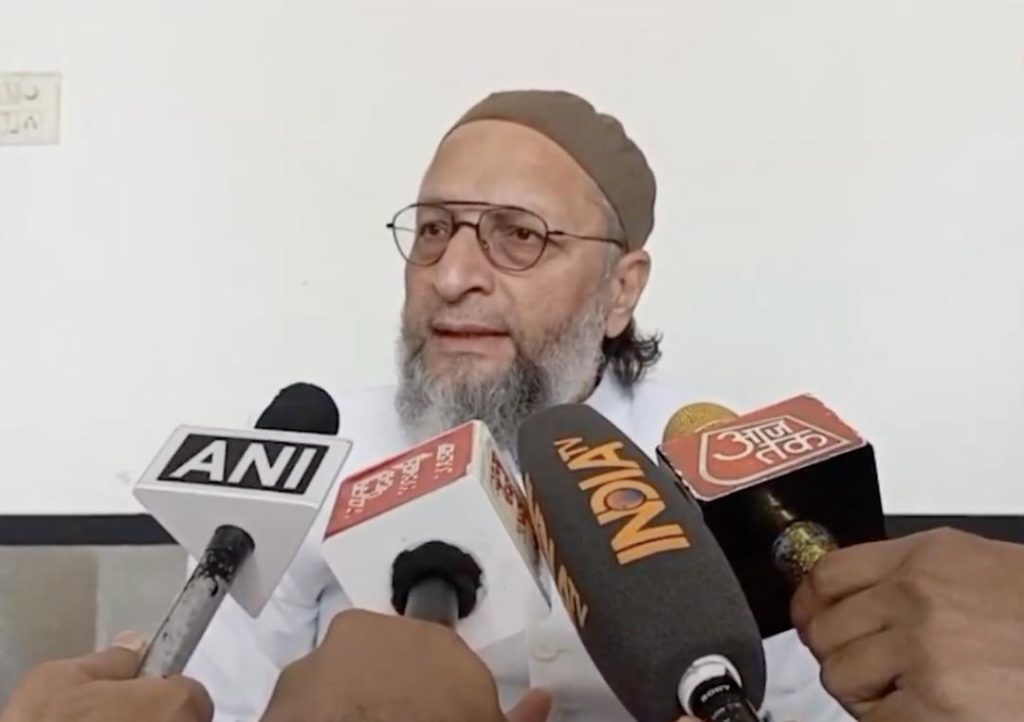
Title: Arrest 4-5 ministers & govt is gone: Owaisi on PM-CM removal Bills
The Indian political landscape has been abuzz with the recent introduction of the Constitution (130th) Amendment Bill, which proposes to make it easier to remove Prime Ministers, Chief Ministers, and ministers from office. The bill, which was introduced in the Lok Sabha, seeks to amend Article 74 and Article 75 of the Indian Constitution to provide for the removal of these high-ranking officials for a specified period of time. While the government claims that the bill is aimed at strengthening the country’s democracy, many have raised concerns about its potential implications on the country’s political landscape.
One of the most vocal critics of the bill is AIMIM chief Asaduddin Owaisi, who has termed it as a “dangerous” proposal that could lead to the erosion of democratic norms. Speaking on the bill, Owaisi said, “Just arrest four-five ministers, and government is gone. This proposed bill is saying that the President can remove the Prime Minister. What is this?”
Owaisi’s remarks have sparked a heated debate on social media, with many politicians and experts weighing in on the proposed bill. While some have argued that the bill is necessary to ensure accountability and transparency in government, others have expressed concerns about the potential misuse of the law.
The bill, which was introduced by the government in the Lok Sabha, seeks to amend Article 74 and Article 75 of the Indian Constitution to provide for the removal of Prime Ministers, Chief Ministers, and ministers who have been arrested for a specified period of time. The proposed law would allow the President to remove these officials if they are arrested and detained for at least 30 days.
While the government claims that the bill is aimed at strengthening the country’s democracy, many have raised concerns about its potential implications on the country’s political landscape. Owaisi, for instance, has argued that the bill is a “dangerous” proposal that could lead to the erosion of democratic norms.
“This proposed bill is saying that the President can remove the Prime Minister. What is this?” Owaisi asked, adding that the bill was a “blatant” attempt to undermine the country’s democratic institutions.
The AIMIM chief’s remarks have sparked a heated debate on social media, with many politicians and experts weighing in on the proposed bill. While some have argued that the bill is necessary to ensure accountability and transparency in government, others have expressed concerns about the potential misuse of the law.
The proposed law has also raised concerns about the potential impact on the country’s political landscape. Some have argued that the bill could lead to a situation where politicians are arrested and detained for political reasons, rather than on the basis of any real wrongdoing.
The bill has also been criticized by many opposition parties, who have argued that it is a “desperate” attempt by the government to cling to power. The Congress, for instance, has termed the bill as “unconstitutional” and has demanded that it be withdrawn.
The proposed law has also raised concerns about the potential impact on the country’s economy. Some have argued that the bill could lead to a situation where investors are deterred from investing in the country, as they may not be confident in the stability of the government.
The bill has also been criticized by many experts, who have argued that it is a “bad law” that could have unintended consequences. The former Chief Justice of India, Ranjan Gogoi, for instance, has termed the bill as “unconstitutional” and has argued that it could lead to a situation where the country’s democratic institutions are undermined.
The proposed law has also raised concerns about the potential impact on the country’s international relations. Some have argued that the bill could lead to a situation where other countries are deterred from engaging with India, as they may not be confident in the stability of the government.
In conclusion, the proposed bill to amend the Constitution to allow for the removal of Prime Ministers, Chief Ministers, and ministers who have been arrested for a specified period of time has sparked a heated debate in India. While some have argued that the bill is necessary to ensure accountability and transparency in government, others have expressed concerns about its potential implications on the country’s political landscape.
The AIMIM chief, Asaduddin Owaisi, has termed the bill as a “dangerous” proposal that could lead to the erosion of democratic norms. The bill has also been criticized by many opposition parties, who have argued that it is a “desperate” attempt by the government to cling to power.
The proposed law has also raised concerns about the potential impact on the country’s economy and international relations. Some have argued that the bill could lead to a situation where investors are deterred from investing in the country, and other countries are deterred from engaging with India.
In the end, it is up to the Indian people to decide whether the proposed bill is a necessary step towards strengthening the country’s democracy or a dangerous proposal that could undermine the country’s political landscape.






